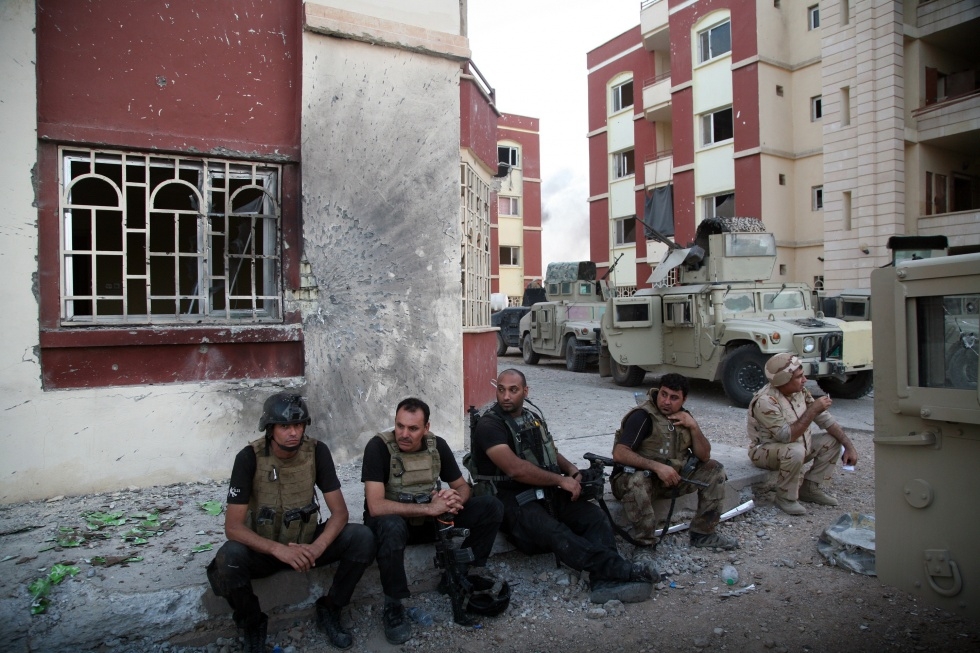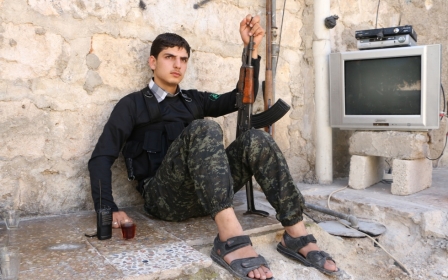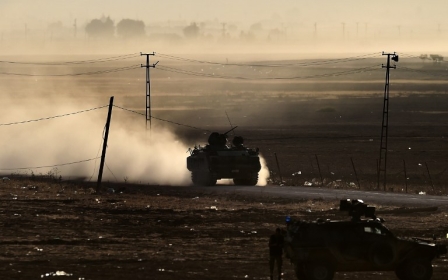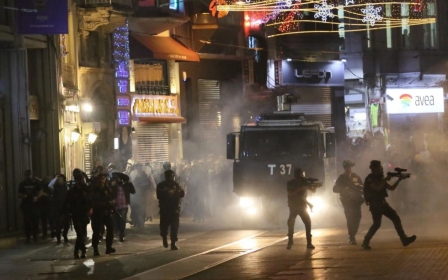Iraq's Anbar 'fragile' as IS advances, local leaders call for US ground troops

Iraqi government forces are in a "tenuous" position in the west of the country but are holding out for the moment against Islamic State (IS) militants, US defence officials said Friday.
Iraq’s army is under mounting pressure in Anbar province as the world’s attention has been fixed on the northern Syrian town of Kobane, where Kurdish fighters are battling an IS offensive, officials told AFP.
"It's tenuous there. They are being resupplied and they're holding their own, but it's tough and challenging," said a senior defence official, who spoke on condition of anonymity.
"I think it's fragile there now," the official told AFP.
Dozens of US-led air strikes in recent weeks in western Iraq, including near the city of Ramadi, have helped counter the IS fighters and the capital Baghdad remained secure, the official said.
IS has so far failed to take the strategic Haditha dam, Iraq’s second largest, with coalition bombing raids helping the Iraqi government fend off militant assaults.
But the situation has illustrated how the Iraqi troops are far from an effective fighting force and in urgent need of training, officials said.
The provincial council of Anbar has written to Iraqi central government and requested US ground troops to aid the fight against IS, local channel al-Sharqiyah has reported.
Iraqi Prime Minister Haider al-Abadi has previously ruled out US ground troops taking part in the fight against IS and American President Barack Obama has similarly said he will be sending combat soldiers to Iraq.
The vice-president of Anbar’s provincial council, Faleh al-Issawi, told The Times of London the province could “fall in 10 days” to IS.
Control of Anbar would give IS a clear route into Baghdad.
"If the Islamic State controls Anbar, they would be able to threaten serious targets in Baghdad," Saeed al-Jayashi, an Iraqi security expert, told the Washington Post Friday.
"The government would lose the Haditha dam, and the security forces would have to retreat," he said. "There would be a bloodbath."
"They're so close to Baghdad now," said Sajad Jayid, Research Fellow at the Iraqi Institute for Economic Reform.
"I mean, they have always been around but they are now literally 20 minutes drive."
American officials told AFP the difficult circumstances in Anbar contrasted significantly from battlefield reports in the north of Iraq, where Kurdish soldiers are said to have made some headway against IS.
"There's no comparison" between the ability of the Kurdish forces and the Iraqi government army, the official said.
"The Kurds are moving, they're taking back towns and territory," and were able to coordinate with coalition forces, the official said.
The Iraqi army has launched a number of offensives in the country’s west that have quickly fizzled out, he said.
"They start an operation and it stops after a kilometre," said the official, who spoke on condition of anonymity.
The IS group seized the city of Fallujah in Anbar province in January, and have repeatedly attempted to take Ramadi and the Haditha dam.
Anbar province was the main battleground for the Sunni insurgency against US troops that erupted after the US invasion in 2003.
Sunni tribes later opted to side with the Baghdad government and American forces against al-Qaeda's branch in Iraq, which US officers dubbed the "Anbar awakening."
But under the Shiite-led government of former prime minister Nouri al-Maliki this “awakening” ended under allegations Baghdad had treated Iraq’s Sunni population poorly, which led to deep resentment that IS has since sought to exploit in its gains since June.
Kurds hold ground in Kobane
In the Syrian town of Kobane Kurdish fighters early on Saturday pushed back IS militants, who had attempted an advance into the town centre, according to a monitoring group.
The attack came after IS fighters overran Kurdish headquarters in the border town on Friday, sparking fears they would cut off the last escape route to neighbouring Turkey for hundreds of mainly elderly civilians still in the town centre.
Fierce fighting lasted 90 minutes on Saturday morning, according to the UK-based Syrian Observatory for Human Rights that said IS forces then “fell back” from their assault on the town centre.
The monitoring group said US-led coalition warplanes also carried out two air strikes on IS targets south and east of the town early Saturday.
Small groups of Kurdish fighters were trying to pressure the encircling IS militants with operations across the front line, Observatory director Rami Abdel Rahman told AFP.
UN envoy for Syria Staffan de Mistura warned on Friday that 12,000 or so civilians still in or near Kobane "will most likely be massacred" by IS if the town falls.
Kobane was "literally surrounded" except for one narrow entry and exit point to the Turkish border, de Mistura said.
Additional reporting by Alex Macdonald
New MEE newsletter: Jerusalem Dispatch
Sign up to get the latest insights and analysis on Israel-Palestine, alongside Turkey Unpacked and other MEE newsletters
Middle East Eye delivers independent and unrivalled coverage and analysis of the Middle East, North Africa and beyond. To learn more about republishing this content and the associated fees, please fill out this form. More about MEE can be found here.




